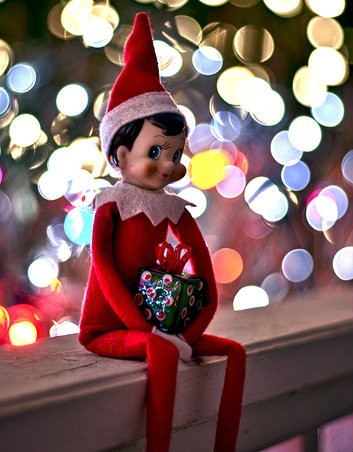No elf on our shelf

Like most American Christians, my family celebrates Christmas with a mix of Jesus and Santa Claus. Our stockings are hung by the fireplace; there’s a nativity set on top of the mantel. We sing “Rudolph” and “O Come, All Ye Faithful.” On Christmas Eve, we’ll go to church and read the Gospel of Luke, then come home and put out cookies for Santa.
Generally, I am okay with this. Children are remarkably able to hold on to more than one reality at a time. I trust mine to understand that this season contains more than one story.
But there is one story we don’t tell, one piece of secular Christmas that’s missing from our collection: there are no elves on our shelves.





